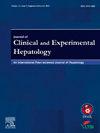Deceased Donor Program in India: Listing and Allocation Practices and the Legal Process With Respect to Liver Transplantation
IF 3.3
Q2 GASTROENTEROLOGY & HEPATOLOGY
Journal of Clinical and Experimental Hepatology
Pub Date : 2024-09-01
DOI:10.1016/j.jceh.2024.102408
引用次数: 0
Abstract
India is the country with the third largest transplantation activity in the world but has one of the lowest deceased donation rates. The Transplantation of Human Organs Act was first enacted as law 29 years ago, its implementation has been non-uniform and growth in deceased donation has been slow and heterogenous. This review discusses the concept of brain death, ethics of deceased donation and organ allocation, Indian legislation in this area and the regulatory structure of the National Organ transplantation program. We also discuss current status of deceased donation and deceased donor liver transplantation in the country, identify variation in liver allocation policies across Indian states and identify areas of need and potential solutions.
印度的死亡捐献者计划:肝脏移植的列表和分配做法及法律程序
印度是世界上移植活动第三多的国家,但却是死者捐献率最低的国家之一。29 年前,《人体器官移植法》首次成为法律,但其执行情况并不统一,死者捐献的增长缓慢且参差不齐。本综述讨论了脑死亡的概念、已故捐赠和器官分配的伦理、印度在该领域的立法以及国家器官移植计划的监管结构。我们还讨论了该国已故捐献和已故捐献者肝脏移植的现状,确定了印度各邦肝脏分配政策的差异,并确定了需求领域和潜在的解决方案。
本文章由计算机程序翻译,如有差异,请以英文原文为准。
求助全文
约1分钟内获得全文
求助全文
来源期刊

Journal of Clinical and Experimental Hepatology
GASTROENTEROLOGY & HEPATOLOGY-
CiteScore
4.90
自引率
16.70%
发文量
537
审稿时长
64 days
 求助内容:
求助内容: 应助结果提醒方式:
应助结果提醒方式:


